7C2 English
Section outline
-
Nau mai, haere mai 7C2
Welcome to your English class for 2024.
Mā te tāngata i te waka
Haere haumaru ki takutai
Hei tūhura ki te ao tūroa
(When the people and the waka
arrive safely to the shores,
they will be ready to explore the world)
Welcome to a new academic year filled with possibilities, growth, and exciting challenges! As you embark on this journey, remember that each day is an opportunity to learn, explore, and discover your incredible potential.
Embrace every challenge with courage, for it is through challenges that we learn, grow, and become stronger individuals. Approach your studies with curiosity and enthusiasm, knowing that each lesson is a step toward your personal and academic success.
Ka Kite Ano
Mrs M Naidoo
-
Kia ora whanau, welcome back to the third term!
He waka e rua, ka taea te hoe – With two canoes, it can be paddled.
This proverb reminds us that by working together, we can achieve great things.Just like successful Olympic teams, our classroom whānau will be stronger when we support and learn from each other.
This term, we'll be using the Olympic Games as a springboard to develop our literacy skills. This week, we'll be diving into reading comprehension passages, putting our critical thinking caps on as we analyze the information and answer questions. Get ready to test your reading muscles and learn all about the exciting world of the Olympics.
Success criteria:
I can identify the main ideas and key details from reading passages about the Olympic Games
I can use context clues to understand the meaning of unfamiliar words related to the Olympics
I can answer questions that require making inferences from the text about the Olympics
-
Kia ora whānau,
This week, we're diving into the world of explanatory writing. We'll be learning how to clearly and concisely explain a topic to our readers. To help us get started, we'll be using a model text as a guide.
To make our writing even more interesting, we'll be focusing on a unique Olympic sport. Get ready to become experts in your chosen sport and share your knowledge with others!
Learning intentions:
We will be able to write clear and informative explanations about a given topic.
Success Criteria:
- Whakaatuhia ngā whakaaro matua : I can clearly explain the main points of my topic.
- Whakamahia ngā parāgrafo hei whakahaere i ngā whakaaro : I can organise my writing into clear paragraphs.
- Whakapaunatia ngā whakaaro mā te whakamahi i ngā kupu hono : I can use words like ‘first’, ‘next’, ‘then’, and ‘finally’ to connect my ideas.
- Whakawhāwhātia ngā mōhiohinga mō te whakamaramatanga : I can use specific details and examples to support my explanation.
- Arotakehia te reo me te whakatikatika : I can check my writing for spelling and grammar mistakes.
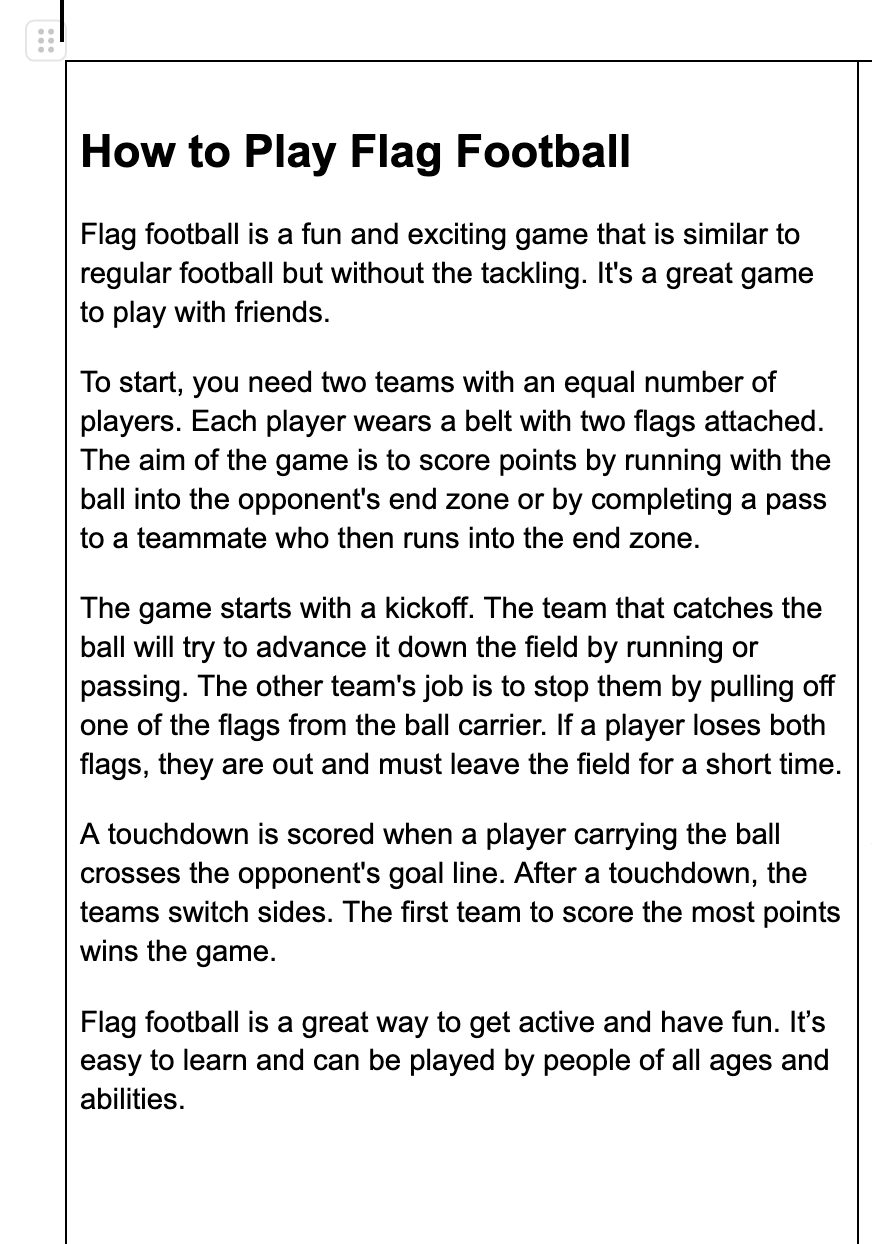
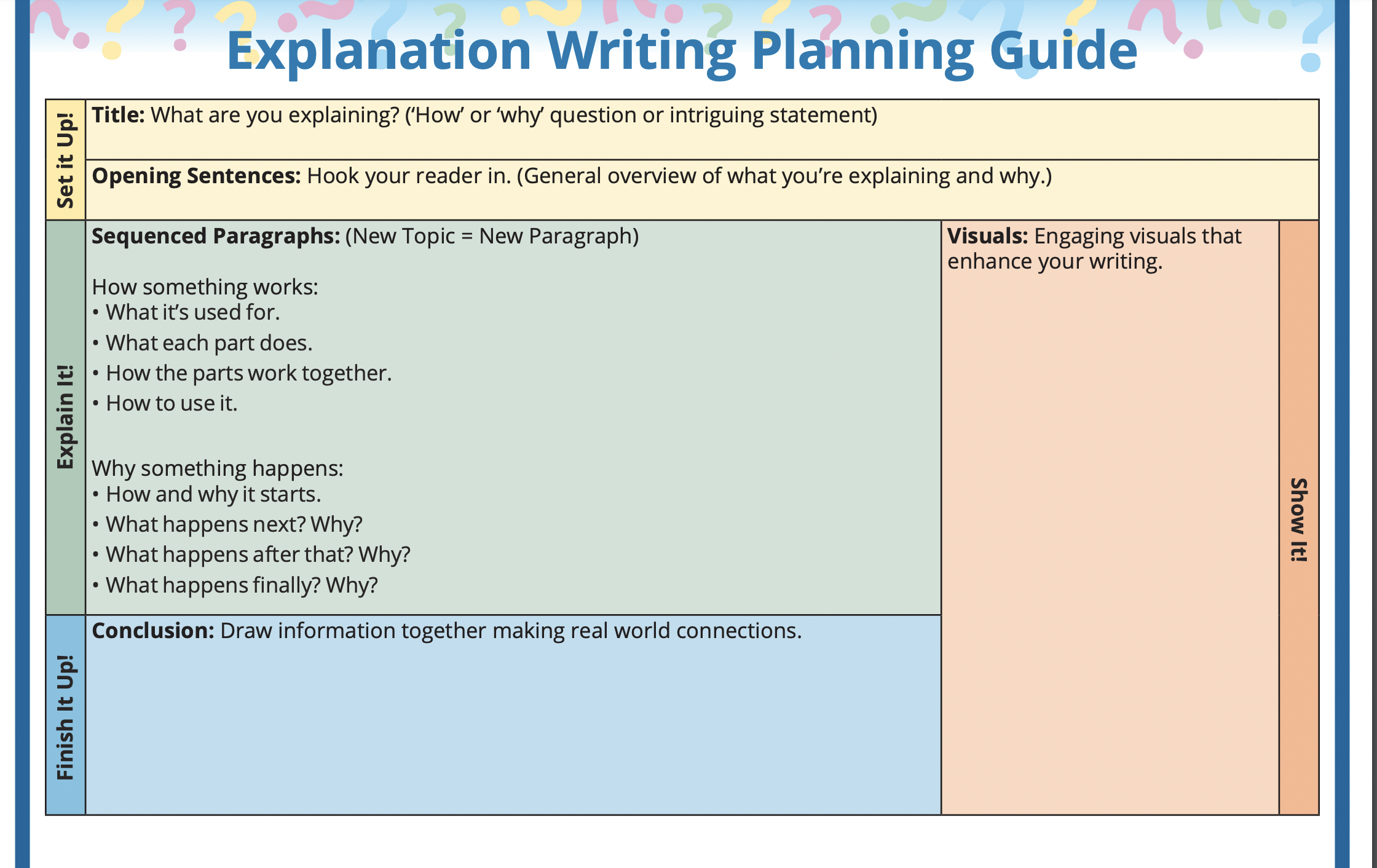
-
Enter text here...
EXPLORE / TŪHURA learning intentions:
- We are EXPLORING how to use a use a growing range of vocabulary to build meaning.
- We are EXPLORING the structural elements in a biography.
- We are EXPLORING how to use the correct tense in our writing.
Enter text here...
Kia ora whānau,
We will continue our journey into the world of explanatory writing. We'll be learning how to clearly and concisely explain a topic to our readers. To help us get started, we'll be using a model text as a guide.
To make our writing even more interesting, we'll be focusing on a unique Olympic sport. Get ready to become experts in your chosen sport and share your knowledge with others!
This week will be our writing week- to edit and publish the best piece of writing we can!
Learning intentions:
We will be able to write clear and informative explanations about a given topic.
Success Criteria:
- Whakaatuhia ngā whakaaro matua : I can clearly explain the main points of my topic.
- Whakamahia ngā parāgrafo hei whakahaere i ngā whakaaro : I can organise my writing into clear paragraphs.
- Whakapaunatia ngā whakaaro mā te whakamahi i ngā kupu hono : I can use words like ‘first’, ‘next’, ‘then’, and ‘finally’ to connect my ideas.
- Whakawhāwhātia ngā mōhiohinga mō te whakamaramatanga : I can use specific details and examples to support my explanation.
- Arotakehia te reo me te whakatikatika : I can check my writing for spelling and grammar mistakes.


-
Enter text here...
EXPLORE / TŪHURA learning intentions:
- We are EXPLORING how to use a use a growing range of vocabulary to build meaning.
- We are EXPLORING the structural elements in a biography.
- We are EXPLORING how to use the correct tense in our writing.
Enter text here...
Kia ora whānau,
This is the week we refine and make our writing the best.
We have had time to research our sport and draft our explanation... now we move on to the grand finale!
Learning intentions:
We will be able to write clear and informative explanations about a given topic.
Success Criteria:
- Whakaatuhia ngā whakaaro matua : I can clearly explain the main points of my topic.
- Whakamahia ngā parāgrafo hei whakahaere i ngā whakaaro : I can organise my writing into clear paragraphs.
- Whakapaunatia ngā whakaaro mā te whakamahi i ngā kupu hono : I can use words like ‘first’, ‘next’, ‘then’, and ‘finally’ to connect my ideas.
- Whakawhāwhātia ngā mōhiohinga mō te whakamaramatanga : I can use specific details and examples to support my explanation.
- Arotakehia te reo me te whakatikatika : I can check my writing for spelling and grammar mistakes.


-
Enter text here...
FOCUS / ARONGA learning intentions:
- We are FOCUSING on identifying key elements of a biography.
- We are FOCUSING editing and proofreading our writing.
Enter text here...
Learning Intentions:
- Students will be able to identify the key elements of a biography, including the subject's life events, achievements, and personality traits.
- Students will be able to gather information from various sources, such as books, articles, and interviews, to write a comprehensive biography.
- Students will be able to organise information in a logical sequence and use appropriate language and style to write a clear and engaging biography.
- Students will be able to edit and revise their work to ensure accuracy, clarity, and coherence.
Success Criteria:
- Understanding of Biography:
- Can identify the key elements of a biography (e.g., birth, childhood, education, career, achievements, personal life, death).
- Can explain the purpose of writing a biography.
- Research Skills:
- Can use a variety of sources (e.g., books, articles, websites) to gather information about a subject.
- Can evaluate the reliability of information sources.
- Can take accurate notes and organise information effectively.
- Writing Skills:
- Can write a clear and engaging introduction to a biography.
- Can use appropriate language and style to describe the subject's life events and achievements.
- Can organise information in a logical sequence (e.g., chronological order).
- Can write a conclusion that summaries the main points of the biography.
- Editing and Revising:
- Can identify and correct errors in grammar, punctuation, and spelling.
- Can improve the clarity and coherence of their writing.
- Can provide constructive feedback to peers
-
Enter text here...
FOCUS / ARONGA learning intentions:
- We are FOCUSING on identifying key elements of a biography.
- We are FOCUSING editing and proofreading our writing.
Enter text here...
Learning Intentions:
- Students will be able to identify the key elements of a biography, including the subject's life events, achievements, and personality traits.
- Students will be able to gather information from various sources, such as books, articles, and interviews, to write a comprehensive biography.
- Students will be able to organise information in a logical sequence and use appropriate language and style to write a clear and engaging biography.
- Students will be able to edit and revise their work to ensure accuracy, clarity, and coherence.
Success Criteria:
- Understanding of Biography:
- Can identify the key elements of a biography (e.g., birth, childhood, education, career, achievements, personal life, death).
- Can explain the purpose of writing a biography.
- Research Skills:
- Can use a variety of sources (e.g., books, articles, websites) to gather information about a subject.
- Can evaluate the reliability of information sources.
- Can take accurate notes and organise information effectively.
- Writing Skills:
- Can write a clear and engaging introduction to a biography.
- Can use appropriate language and style to describe the subject's life events and achievements.
- Can organise information in a logical sequence (e.g., chronological order).
- Can write a conclusion that summaries the main points of the biography.
- Editing and Revising:
- Can identify and correct errors in grammar, punctuation, and spelling.
- Can improve the clarity and coherence of their writing.
- Can provide constructive feedback to peers
-
Enter text here...
PLAN & DO / WHAKAMAHI learning intentions:
- We are PLANNING our biography based on an athlete who has competed in the Olympics so that we can successfully write a text in chronological order.
Enter text here...
-
Opened: Wednesday, 28 August 2024, 12:00 AMDue: Wednesday, 4 September 2030, 12:00 AM
-
Learning Intentions
- Students will be able to identify and use expressive verbs to add detail and depth to their writing.
- Students will be able to identify and use expressive adjectives to create vivid imagery and sensory details in their writing.
- Students will be able to combine expressive verbs and adjectives to enhance the impact and clarity of their writing.
Success Criteria
- Students can correctly identify expressive verbs in a given text.
- Students can use expressive verbs to replace generic verbs and make their writing more engaging.
- Students can correctly identify expressive adjectives in a given text.
- Students can use expressive adjectives to describe the appearance, qualities, or characteristics of people, places, or things.
- Students can combine expressive verbs and adjectives to create vivid and memorable sentences.
- Students can write paragraphs that effectively use expressive language to convey their ideas and emotions.
-
What is a comic strip?
A comic strip is a sequence of drawings that tell a story. Each drawing is called a panel, and they are arranged in a series to show the progression of the story.
Why do we use comic strips?
Comic strips are a fun and engaging way to tell stories. They can be used to express ideas, entertain, and even educate.
What are the key elements of a comic strip?
- Panels: These are the individual drawings that make up the comic strip.
- Speech bubbles: These contain the dialogue between characters.
- Captions: These provide additional information or narration.
- Sound effects: These are used to represent sounds in the story.
Let's get started creating our own comic strips!
Learning Intentions
- Students will be able to create comic strips that effectively communicate a story using speech bubbles and frames.
- Students will be able to use appropriate vocabulary and sentence structure in their speech bubbles to convey meaning.
- Students will be able to use visual elements such as panels, captions, and sound effects to enhance their comic strips.
Success Criteria
- Students create comic strips with clear and sequential storylines.
- Students use speech bubbles and frames effectively to show dialogue and action.
- Students use appropriate vocabulary and sentence structure in their speech bubbles.
- Students use visual elements such as panels, captions, and sound effects to enhance their comic strips.
- Students' comic strips are visually appealing and well-organised.
-
What is a comic strip?
A comic strip is a sequence of drawings that tell a story. Each drawing is called a panel, and they are arranged in a series to show the progression of the story.
Why do we use comic strips?
Comic strips are a fun and engaging way to tell stories. They can be used to express ideas, entertain, and even educate.
What are the key elements of a comic strip?
- Panels: These are the individual drawings that make up the comic strip.
- Speech bubbles: These contain the dialogue between characters.
- Captions: These provide additional information or narration.
- Sound effects: These are used to represent sounds in the story.
Let's get started creating our own comic strips!
Learning Intentions
- Students will be able to create comic strips that effectively communicate a story using speech bubbles and frames.
- Students will be able to use appropriate vocabulary and sentence structure in their speech bubbles to convey meaning.
- Students will be able to use visual elements such as panels, captions, and sound effects to enhance their comic strips.
Success Criteria
- Students create comic strips with clear and sequential storylines.
- Students use speech bubbles and frames effectively to show dialogue and action.
- Students use appropriate vocabulary and sentence structure in their speech bubbles.
- Students use visual elements such as panels, captions, and sound effects to enhance their comic strips.
- Students' comic strips are visually appealing and well-organised.
-
E ora, e hoa ma!
Welcome back to our final term of the year. I hope you all had a restful and rejuvenating break. As we embark on this final stretch of our learning journey, this term our context of learning is Shining Through Celebrations.
This term, we will explore the beauty and significance of cultural celebrations from around the world. We will discover how these celebrations can bring people together, preserve traditions, and inspire us to be our best selves.
Together, let's whiwhi (gather) knowledge, whakarongo (listen) to different perspectives, and whakaatu (show) our appreciation for the rich tapestry of cultures that make up our world.
Let's make this term one to remember! Kia kaha, kia maia, kia manawanui! (Be strong, be courageous, be patient!)
Mrs Naidoo
-
Kia ora Year 7s,
This week, we'll be working on sharpening our writing skills to prepare for our E-asttle. Let's focus on effective time management and creating top-notch pieces of writing.
Let's make this week a productive and successful one!
Learning Intentions
- Understand the purpose and structure of paragraphs.
- Write clear and concise sentences.
- Use correct grammar, punctuation, and spelling.
- Develop a strong vocabulary.
- Express ideas effectively in writing.
We will be able to:
- Express ideas clearly and concisely.
- Organise thoughts logically.
- Use evidence to support arguments.
- Edit and revise writing for clarity and coherence.
-
Kia ora Year 7s,
This week is a bit shorter due to Labour Day and our Athletics Day on Friday. Unfortunately, we'll miss two lessons.
On Tuesday, we'll visit the library to find some great books to keep us entertained until next week.
Nga mihi nui
Mrs M Naidoo
-
Based on our focus on cultural celebrations, we will explore Diwali through a reading comprehension activity. We will then apply our understanding to a fun scavenger hunt puzzle. This will help us learn about the various festivities associated with Diwali.
Learning Intentions
- Students will develop an understanding of the cultural significance of Diwali.
- Students will be able to identify and explain key Diwali traditions and customs.
- Students will enhance their reading comprehension skills by analysing a text about Diwali.
- Students will apply their knowledge of Diwali to solve a scavenger hunt puzzle.
Success Criteria
- Students can accurately identify the main events and symbols associated with Diwali.
- Students can explain the reasons behind specific Diwali traditions and customs.
- Students can answer questions about the text with supporting evidence.
- Students can work collaboratively to solve the scavenger hunt puzzle.
- Students can demonstrate critical thinking skills by analysing clues and making inferences.
-
FOCUS / ARONGA learning intentions:
- We are FOCUSING on responding to longer texts - identifying, inferencing, predicting, vocabulary.
- We are FOCUSING on making inferences about important ideas by using details provided in the story.
This week we will be reading about Halloween: Celebrating differently

Success criteria:
- I can understand the purpose of the text (e.g., to inform, entertain, persuade).
- I can explain the meaning of unfamiliar words and phrases.
- I can make inferences based on information in the text and my own background knowledge.
- I can use evidence from the text to support my inferences.
-
FOCUS / ARONGA learning intentions:
- We are FOCUSING on responding to longer texts - identifying, inferencing, predicting, vocabulary.
- We are FOCUSING on making inferences about important ideas by using details provided in the story.
This week, we're diving into the world of Irish culture and one of its most famous celebrations: St. Patrick's Day!
Get ready to learn about the history, traditions, and fun facts behind this colorful holiday. We'll explore everything from shamrocks and leprechauns to Irish dancing and delicious food. So, let's put on our green hats and get started! 🍀🇮🇪
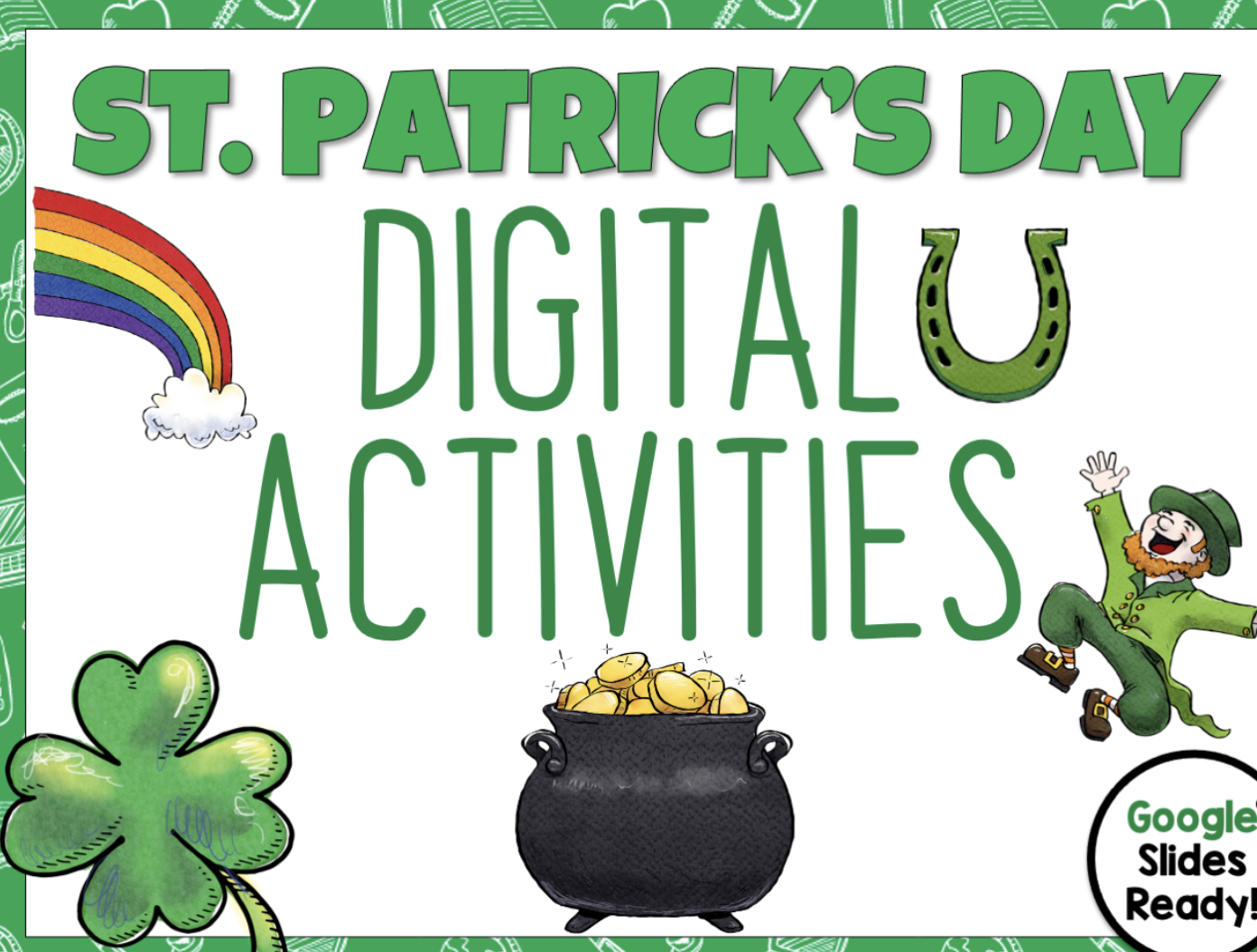
- I can make predictions about what will happen next in the text.
- I can adjust my predictions as I read more of the text.
- I can use appropriate language and vocabulary.
- I can participate in discussions about the text.
-
EXPLORE / TŪHURA learning intentions:
- We are exploring how Shrek challenges traditional fairy tale stereotypes and celebrates individuality.
- We are exploring the importance of accepting differences and embracing diversity in all its forms.
- We are exploring how Shrek uses humour and satire to critique societal norms and expectations
Pono: Hauora
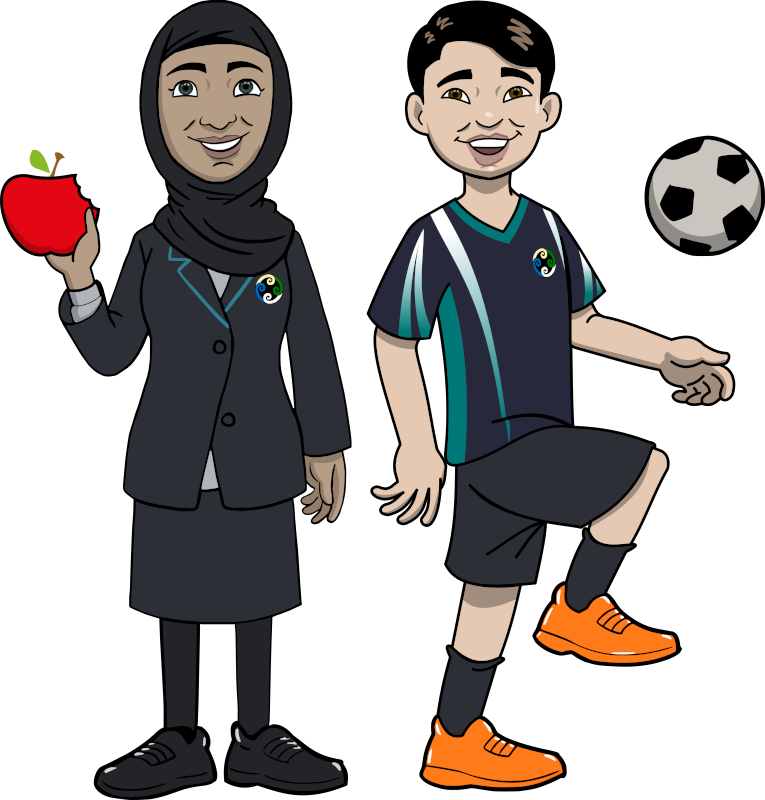
Awhinatanga: Positive Partnerships
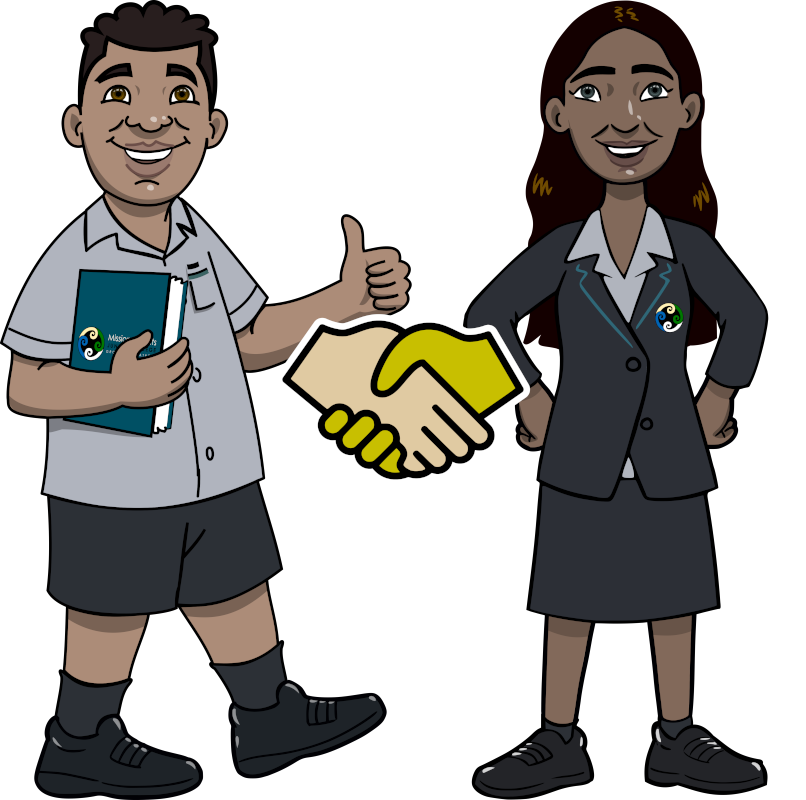
Ako: Digital Literacy
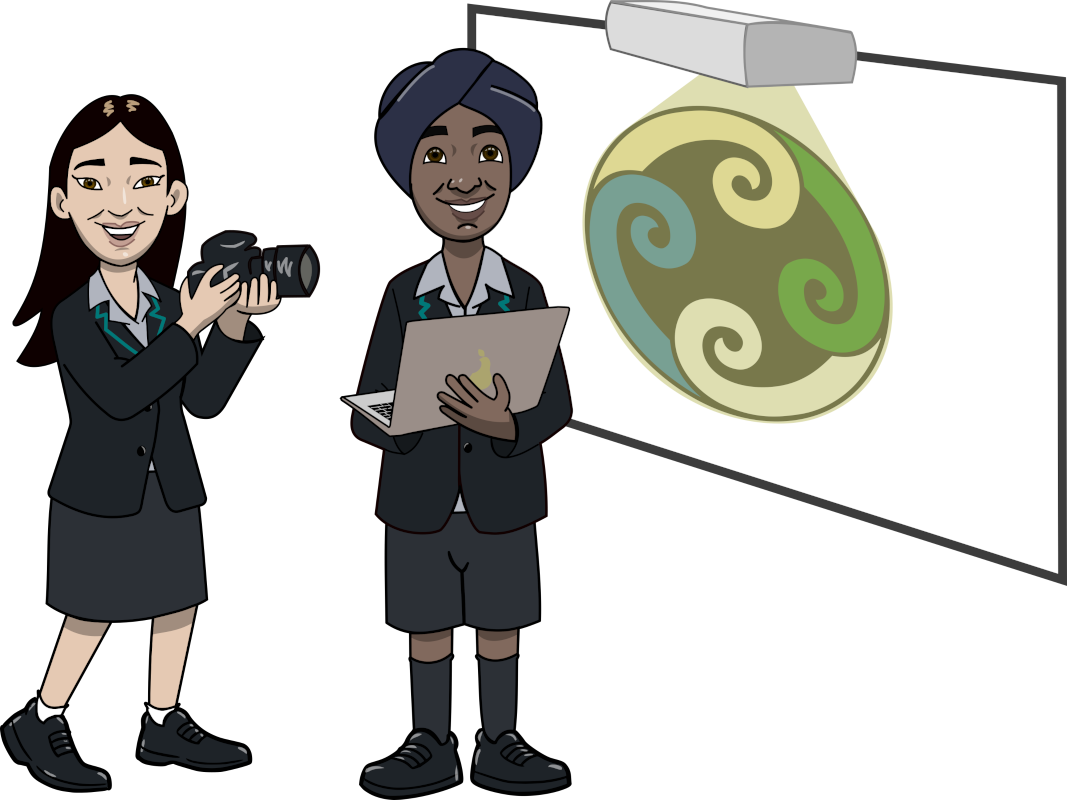
Welcome to Shrek's Swamp!
Today, we're embarking on a magical journey into the world of fairy tales, but not as you know them! We'll be exploring the hilarious and heartwarming movie, Shrek.
As we watch, we'll be thinking about the importance of diversity and celebrating our differences. Shrek teaches us valuable lessons about friendship, acceptance, and being true to ourselves, no matter how different we may seem.
-
EXPLORE / TŪHURA learning intentions:
- We are exploring how Shrek challenges traditional fairy tale stereotypes and celebrates individuality.
- We are exploring the importance of accepting differences and embracing diversity in all its forms.
- We are exploring how Shrek uses humour and satire to critique societal norms and expectations
Pono: Hauora

Awhinatanga: Positive Partnerships

Ako: Digital Literacy

Learning Intentions
- We are exploring how camera angles, particularly point-of-view shots, are used to create empathy and understanding for characters.
- We are exploring how lighting techniques are used to establish the tone, emotion, and mood of different scenes in the film.
Success Criteria
Camera Angles and Point-of-View
- I can identify different types of camera angles, such as close-up, medium shot, and long shot.
- I can explain how point-of-view shots are used to show a character's perspective.
- I can analyse how camera angles are used to create suspense, humour, or other emotions.
- I can identify different types of lighting, such as high-key and low-key lighting.
- I can explain how lighting is used to create different moods and atmospheres.
- I can analyse how lighting is used to highlight or downplay certain elements of a scene.
-
EXPLORE / TŪHURA learning intentions:
- We are exploring how Shrek challenges traditional fairy tale stereotypes and celebrates individuality.
- We are exploring the importance of accepting differences and embracing diversity in all its forms.
- We are exploring how Shrek uses humour and satire to critique societal norms and expectations
Pono: Hauora

Awhinatanga: Positive Partnerships

Ako: Digital Literacy

- We are analyzing the development of characters and their relationships through dialogue, actions, and visual cues.
- We are investigating the use of humor, satire, and irony to challenge traditional fairy tale conventions.
